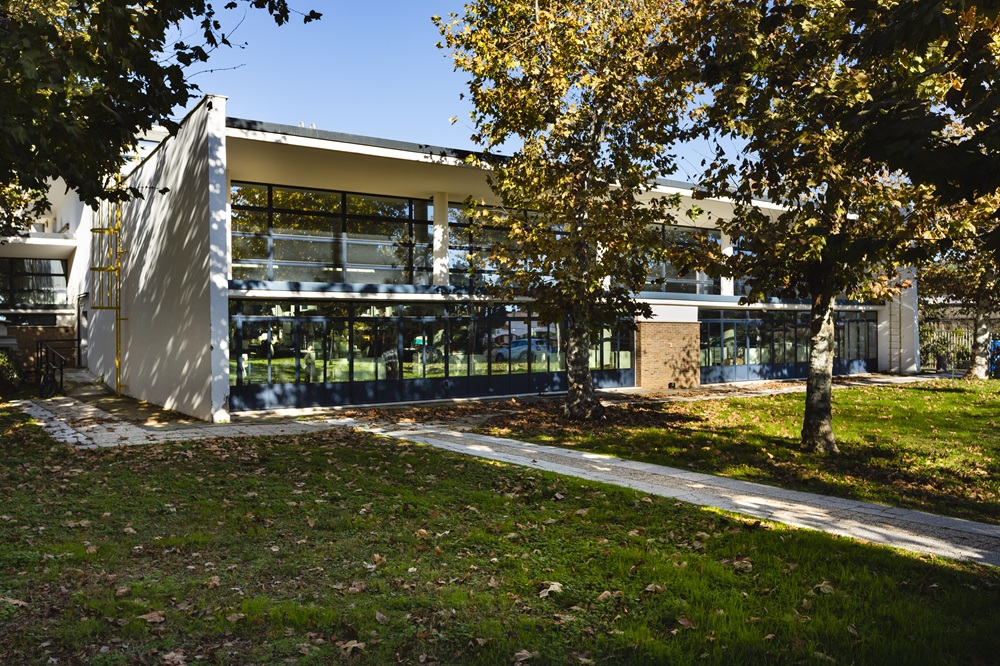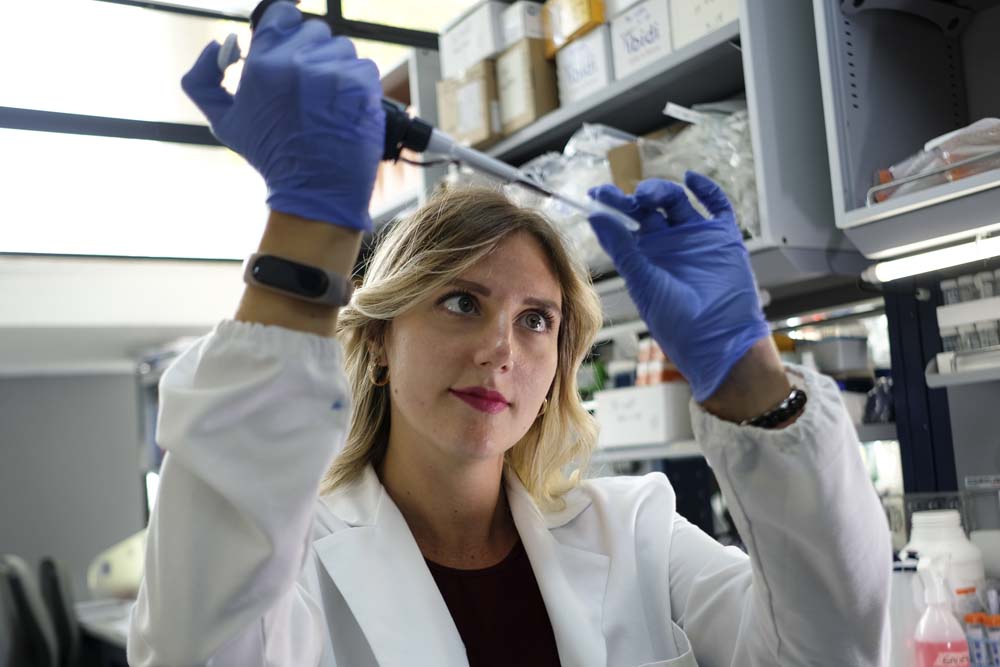The Institute, directed by Prof. Alberto Auricchio, is a centre of excellence for research in Italy. In 2013 it moved to a new location in the former Olivetti factory building in Pozzuoli (Naples) and has become a pole of attraction, drawing researchers from all over the world.
The Institute studies the genetic bases of diseases in order to develop novel therapies. The competitiveness of Tigem is also reflected in its ability to attract the support of prestigious international funding bodies, including the European Research Council (ERC).

Lines of research
The Institute conducts research projects along three main lines.
Cell biology and Disease mechanisms
The use of cell and animal model systems, with the support of advanced microscopy, to study the mechanisms underlying genetic diseases: understanding these is the first step towards identifying a possible treatment.
Researching rare genetic disorders with Cell Biology approaches allows us to understand the behaviour of individual diseased cells and unravel the mechanisms which arise from genetic defects. The overall aim of the Cell Biology and Disease Mechanisms (CBDM) program is to understand disease mechanisms by looking at cellular organization at the morpho-functional level: how different cell types accomplish their individual tasks, how these different cells cooperate to form tissues and systems, and how mutations in disease genes may alter these functions.
The final objective is to provide improved management of genetic diseases and therapeutic tools. Techniques used in the CBDM program include, but are not limited to, genetic analysis, protein and lipid biochemistry, developmental biology, yeast cell biology, and molecular pharmacology. We use these techniques to study trafficking and sorting of proteins and lipids, organelle biogenesis and regulation, and signal transduction.
Heads of the research teams involved:

Genomic Medicine
Bioinformatics is used to analyse the behaviour and interaction of genes, develop mathematical models of biological processes, study possible alternative uses of conventional drugs, discover genetic causes of undiagnosed diseases. Drawing on this expertise, TIGEM coordinates Fondazione Telethon's Undiagnosed Disease Programme.
The Genomic Medicine (GN) program is composed of investigators with biomedical, engineering, and computer science backgrounds who work in close collaboration with the geneticists and molecular biologists within the Institute. This makes TIGEM one of the few interdisciplinary institutes that applies computational biology approaches to genetic diseases.
The GM program plays a significant role at TIGEM: researchers are regularly encouraged to use innovative technologies and robust experimental and computational tools in their own research projects. These approaches include Next Generation Sequencing (NGS) for DNA and RNA sequencing in single cells, machine learning approaches to drug repositioning, and microfluidics technology for cell culture and quantitative biology.
Heads of the research teams involved:

Molecular Therapy
The development of new therapeutic approaches involving the use of small molecules or gene therapy to correct the defects that are the cause of serious genetic diseases for which there is still no effective treatment.
The mission of TIGEM’s Molecular Therapy (MT) research plan is to develop novel strategies for the prevention and treatment of disease. One of our major research strategies is in vivo vector-mediated gene therapy. The general objective is to develop new vector systems and non viral delivery strategies using adeno-associated vectors (AAV) and lipid nanoparticles (LNPs) delivery methods, test them in the appropriate animal models, and translate the most promising approaches to the clinic.
Here at TIGEM, the AAV vector system has been particularly successful when used in several pre-clinical studies on lysosomal storage disorders (LSDs) and in a vast series of animal models of retinal degenerations. We also utilize FDA-approved small molecules libraries with the aim to expand potential existing treatments to the rare disease field (drug repurposing).
Heads of the research teams involved:
The diseases we study
Diseases caused by defects in cell communication: which?
Lysosomal storage diseases: which?
Retinal degenerative diseases: which?
Metabolic disorders of the liver: which?
Top-level training
Researchers are selected on the basis of merit, through interviews and competitions, in line with the values of Telethon. The Institute then organises training programs to connect young researchers with the mission of Telethon: to find a treatment for rare genetic diseases.
Tigem also collaborates with two leading universities to provide high-quality PhD and training programs for researchers. The two universities of reference are: Open University programme in Human Genetics and European School of Molecular Medicine (SEMM) programme in Molecular Medicine (CEINGE, IFOM, Federico II, Università di Milano).